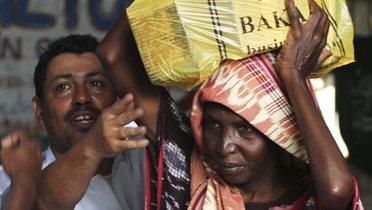INTRODUCTION
On July 9, South Sudan not only became the world’s newest country, but its newest fragile state.
In the half-century leading up its birth, South Sudan was officially at war during three out of every four years. This created a cycle of conflict and instability that has fed distrust among its different ethnic groups and devastated its infrastructure and economy. Much emphasis has been placed on the 2005 peace accord with Khartoum, of which a number of key elements remain unresolved, including the fate of the three areas of Abyei, South Kordofan and Blue Nile along the north-south border, and an oil revenue-sharing agreement which represents the south’s lifeline. The new nation is characterized by weak institutions, which are a mishmash of old rules that have largely been forgotten and dubious practices carried out during the civil war that need to be unlearned (Chandy, 2008). The state has very limited capacity to deliver services, reflected in the country’s appalling human development indicators (SSCCSE, 2010; World Bank, 2011a). Three out of four household heads never attended school and 84 percent of women cannot read or write. The maternal mortality ratio is possibly the highest in the world at 2,054 per 100,000 live births. Half the population lives in poverty and food insecurity is currently at crisis levels in five of the country’s 10 states (USAID, 2011).
What is an appropriate role for foreign aid in a country such as South Sudan? Fragile states pose a dilemma for the development community. These countries present not only some of the most serious and urgent development needs in the world, but the most difficult environments in which to deliver aid effectively.
This policy paper outlines an agenda for making aid more effective in fragile states. It examines how aid agencies can better support countries like South Sudan to develop into stable, resilient and prosperous countries in which conflict is avoided, confidence and trust within society are strengthened, and citizens view the government as capable, responsive and accountable. It then set outs some steps the development community can take later this year at the fourth High Level Forum on Aid Effectiveness in Busan, Republic of Korea, to move this agenda forward.



